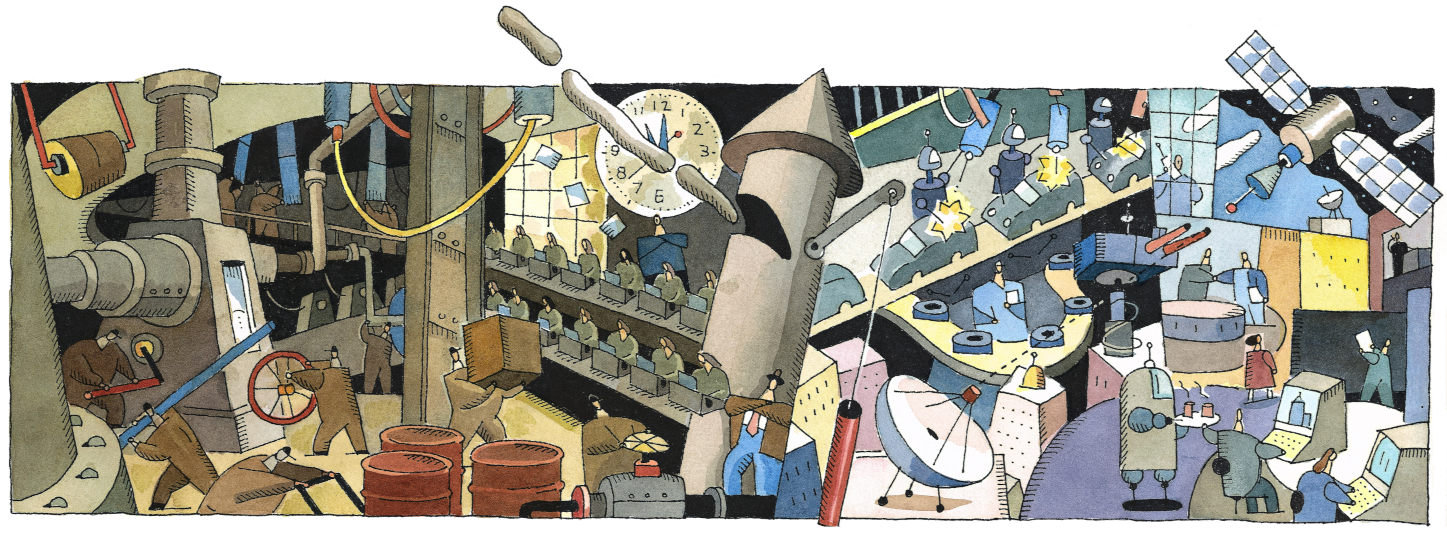Work history

Preamble
My path through professional life has been winding and enriching.
By training and constitution I'm a historian, but one who's always been handy with computers since childhood. The (possibly unholy) union of these interests has led me through some fascinating organizations, and granted me positions in the fields of digital humanities and civic tech. You could say that my work history displays a desire to work on public service projects, especially those that increase access to or create new knowledge.
Going forward, I hope to continue public service work in whatever form that takes. I vastly prefer this kind of work -- even if the compensation is a bit lower -- to working on projects of dubious social value. There's plenty of the latter, and, apparently, plenty of people willing to do it. But it's not for me.
Finally, I want to recognize that any work listed below came almost entirely because someone somewhere took a chance on me, usually when they had little logical reason to do so. You have to be prepared for luck, to be sure, but good fortune has been the name of the game.
Work history
-
18F, General Services Administration
Consulting Engineer 2022-2025
18F was a federal digital consultancy formed in 2014 to assist agencies in building, buying, and sharing technology more effectively. It promoted practices like human-centered design and agile development in work with partner agencies across the federal government, and became a touchstone for similar state and local efforts throughout the country. Because it was respected, effective, and efficient, it was naturally abolished by Elon Musk and his band of DOGE cretins.
You can read more about 18F, including its famous guides and blog, at its site-in-exile here.
Role and duties
- Assisted federal agencies with improving their software development practices using agile methods
- Engineering Lead for the flagship project to build a successor to the National Weather Service's public facing website, which you can find at beta.weather.gov. Read more about this project here.
- Worked on Login.gov -- the federal government's in-house SSO -- as part of the team desigining, building, testing, and maintaining the "identity proofing" flow. Read more about this project here.
- Editor of the internal engineering newsletter, where I also maintained a monthly list of interesting articles, papers, talks, and blog posts. I hope to provide a similar feed somewhere around here in the near future.
-
IdeaFactory Lab, UnitedLex
Computing Researcher
2020-2021
The IdeaFactory was a small group embedded in a legal tech company whose purpose was to explore the future of computing environments as a literate medium. Heavily inspired by the work of luminaries in the history of computing whose work we felt was unappreciated in the mainstream, the team was able to draft an initial working description of an experimental computing environment. (See this related line of inquiry)
The primary output of the group was a computational authoring environment called Simpletalk (Github). You can read more about my work on this project here.
Role and duties
- Co-authored an initial design for what we called a "metaphor-based" computing environment
- Wrote an interpreter for the Simpletalk system's eponymous scripting language
- Implemented the Simpletalk system and helped create its live documentation
- Presented our group's philosophy and work at Strange Loop 2021 with the presentation Authorship Environments: in search of the "personal" in personal computing
-
Merriam Tech Inc.
COO / Frontend Engineer
2016-2020
Merriam was founded in 2016 with the purpose of applying machine learning techniques to large volume document collections. Our goal was to produce a "search" experience like that of the physical archive: one where an expert (an archivist) could suggest broad recommendations based on incomplete and piecemeal starting information. The result was a kind of expert archival system that users could "converse" with -- not in the sense of an actual conversation like today's LLMs, but using more nuanced, visceral, and inhenrently computational modes of interaction.
Role and duties
- Developed customized systems for clients to interact with document collections numbering in the tens or hundreds of millions using machine learning techniques
- Created a system for exploring the entire US Patent Office database via an easy-to-use user interface
- Engineered MVP systems for law firms seeking to standardize and automate rigid processes like immigration filings, potentially saving hundreds of person-hours in each case
-
History Lab, Columbia University
Project Manager and Developer
2014-2016
Created by Professor Matt Connelly in 2013 as the Declassification Engine, History Lab is a research effort spanning disciplines and departments at Columbia University, from History through Statistics to Computer Science. The project's goal is to use computational methods to assist the federal government in declassifying as much material as it can -- what is at present a poorly funded mandate.
This project made waves in the press when it was first announced, and has produced meaningful research -- including a first-of-its-kind paper in Nature -- and, perhaps most importantly, a book by the project's founder: The Declassification Engine: what history reveals about America's top secrets.
In the process of conducting multiple avenues of research, History Lab has built the single largest single repository of declassified documents available anywhere.
Role and duties
- Managed the database of processed declassified government documents, the largest such database available
- Created a document ingestion pipeline for handling large volumes of declassified material, and making it available for processing by various machine learning tools used by the project members
- Helped develop the History Lab website and interactive application exploration interface
- Dealt with technical system administration, developed best practices and standards, managed student researchers, conducted weekly meetings, and contributed to grant writing efforts